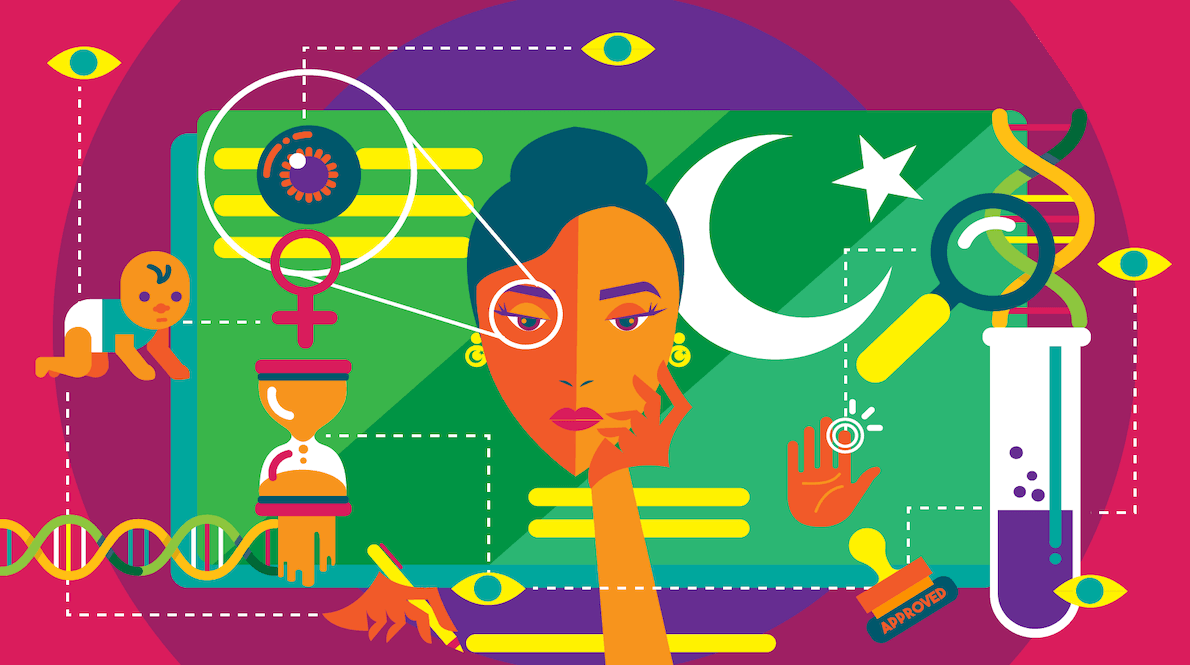Future

Havelian aur Hava: On Architecture and Air Pollution
How Karachi's architecture became environmentally unsustainable.
By sarah shamim

Anti-Ahmadi hashtags: Initiated by Jamiat Ulema Islam, supported by all
The hashtags #AhmadisAreNotMuslims and #Expose_Qadyani_ProMinisters may have been started by JUI activists, but their popularity amongst users across the political spectrum reflects the strength of anti-Ahmadi hatred in Pakistan.
By Asad Pabani

#SackShireenMazari
We analyzed a network of Twitter accounts targeting Pakistan’s Minister of Human Rights.
By Asad Pabani

Does your pichal pairi have a guitar-slinging boyfriend?
On the possibilities inherent in Pakistani speculative fiction
By Hamza Sarfraz

City of slights
More and more people are living independently in Karachi, by choice or by circumstance. What problems do they face?
By Sarah Dara

She had a child through a sperm donor. Nadra refuses to recognise it.
A non-traditional family's looming collision with the patrilineal Pakistani state
By Annam Lodhi

A Web of Disinformation
How is a Brussels-based group managed by Indian stakeholders influencing narratives about Kashmir?
By Annam Lodhi

Something stinks in the Capital
Will Islamabad's single-use plastic ban help control the city's sprawling landfill sites?
By Annam Lodhi

“Many accounts on Twitter are created for propaganda”
Rizwan Saeed, an online big data researcher, talks to Soch about his frustration with ‘propaganda fake accounts.'
By Maham Javaid

Facebook and fifth generation warfare
Fifth generation warfare was popularised by Major General Asif Ghafoor. There are very few mentions of it online.
By Asad Pabani

The truth behind India’s airstrikes in Balakot
Nine days after the Balakot airstrike, Soch visited the bomb site to explore what happened first-hand.
By Asad Pabani

Afghanistan and Syria’s role in geopolitics
Welcome to World War III, where superpowers can have their cake and eat it too.
By Asad Pabani

Pakistan’s biggest threat: contaminated water
the World Bank estimates that water pollution costs Pakistan around $6 billion, or roughly 4% of its GDP annually.
By Asad Pabani

